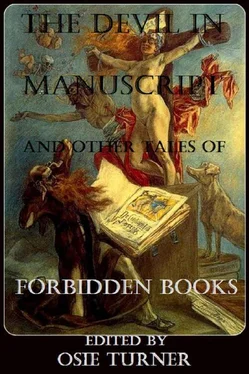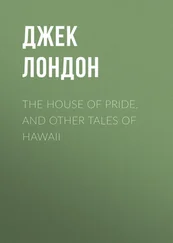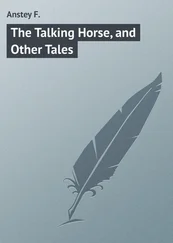“Stabbed,” he tittered, listening to the bells jingling on his cap.
“Was she fair?” I asked, but he only snarled, muttering to the bells jingling on his cap.
“She kissed him at the gate,” he tittered, “but in the hall his brother’s welcome touched his heart.”
“Was she fair?” I asked.
“Stabbed,” he chuckled. “Think of the long journey, the days of peril, the dreadful nights! Think how he wandered, for her sake, year after year through hostile lands, yearning for kith and kin, yearning for her!”
“She kissed him at the gate, but in the hall his brother’s welcome touched his heart.”
“Was she fair?” I asked; but he only snarled, listening to the bells jingling in his cap.
THE GREEN ROOM
The Clown turned his powdered face to the mirror.
“If to be fair is to be beautiful,” he said, “who can compare with me in my white mask?”
“Who can compare with him in his white mask?” I asked of Death beside me.
“Who can compare with me?” said Death, “for I am paler still.”
“You are very beautiful,” sighed the Clown, turning his powdered face from the mirror.
THE LOVE TEST
“If it is true that you love,” said Love, “then wait no longer. Give her these jewels which would dishonour her and so dishonour you in loving one dishonoured. If it is true that you love,” said Love, “then wait no longer.”
I took the jewels and went to her, but she trod upon them, sobbing: “Teach me to wait—I love you!”
“Then wait, if it is true,” said Love.
END
The Man Who Found Out (A Nightmare)
by
Algernon Blackwood
I
PROFESSOR MARK EBOR, the scientist, led a double life, and the only persons who knew it were his assistant, Dr. Laidlaw, and his publishers. But a double life need not always be a bad one, and, as Dr. Laidlaw and the gratified publishers well knew, the parallel lives of this particular man were equally good, and indefinitely produced would certainly have ended in a heaven somewhere that can suitably contain such strangely opposite characteristics as his remarkable personality combined.
For Mark Ebor, F.R.S., etc., etc., was that unique combination hardly ever met with in actual life, a man of science and a mystic.
As the first, his name stood in the gallery of the great, and as the second—but there came the mystery! For under the pseudonym of “Pilgrim” (the author of that brilliant series of books that appealed to so many), his identity was as well concealed as that of the anonymous writer of the weather reports in a daily newspaper. Thousands read the sanguine, optimistic, stimulating little books that issued annually from the pen of “Pilgrim,” and thousands bore their daily burdens better for having read; while the Press generally agreed that the author, besides being an incorrigible enthusiast and optimist, was also—a woman; but no one ever succeeded in penetrating the veil of anonymity and discovering that “Pilgrim” and the biologist were one and the same person.
Mark Ebor, as Dr. Laidlaw knew him in his laboratory, was one man; but Mark Ebor, as he sometimes saw him after work was over, with rapt eyes and ecstatic face, discussing the possibilities of “union with God” and the future of the human race, was quite another.
“I have always held, as you know,” he was saying one evening as he sat in the little study beyond the laboratory with his assistant and intimate, “that Vision should play a large part in the life of the awakened man—not to be regarded as infallible, of course, but to be observed and made use of as a guide-post to possibilities——”
“I am aware of your peculiar views, sir,” the young doctor put in deferentially, yet with a certain impatience.
“For Visions come from a region of the consciousness where observation and experiment are out of the question,” pursued the other with enthusiasm, not noticing the interruption, “and, while they should be checked by reason afterwards, they should not be laughed at or ignored. All inspiration, I hold, is of the nature of interior Vision, and all our best knowledge has come—such is my confirmed belief—as a sudden revelation to the brain prepared to receive it——”
“Prepared by hard work first, by concentration, by the closest possible study of ordinary phenomena,” Dr. Laidlaw allowed himself to observe.
“Perhaps,” sighed the other; “but by a process, none the less, of spiritual illumination. The best match in the world will not light a candle unless the wick be first suitably prepared.”
It was Laidlaw’s turn to sigh. He knew so well the impossibility of arguing with his chief when he was in the regions of the mystic, but at the same time the respect he felt for his tremendous attainments was so sincere that he always listened with attention and deference, wondering how far the great man would go and to what end this curious combination of logic and “illumination” would eventually lead him.
“Only last night,” continued the elder man, a sort of light coming into his rugged features, “the vision came to me again—the one that has haunted me at intervals ever since my youth, and that will not be denied.”
Dr. Laidlaw fidgeted in his chair.
“About the Tablets of the Gods, you mean—and that they lie somewhere hidden in the sands,” he said patiently. A sudden gleam of interest came into his face as he turned to catch the professor’s reply.
“And that I am to be the one to find them, to decipher them, and to give the great knowledge to the world——”
“Who will not believe,” laughed Laidlaw shortly, yet interested in spite of his thinly-veiled contempt.
“Because even the keenest minds, in the right sense of the word, are hopelessly—unscientific,” replied the other gently, his face positively aglow with the memory of his vision. “Yet what is more likely,” he continued after a moment’s pause, peering into space with rapt eyes that saw things too wonderful for exact language to describe, “than that there should have been given to man in the first ages of the world some record of the purpose and problem that had been set him to solve? In a word,” he cried, fixing his shining eyes upon the face of his perplexed assistant, “that God’s messengers in the far-off ages should have given to His creatures some full statement of the secret of the world, of the secret of the soul, of the meaning of life and death—the explanation of our being here, and to what great end we are destined in the ultimate fullness of things?”
Dr. Laidlaw sat speechless. These outbursts of mystical enthusiasm he had witnessed before. With any other man he would not have listened to a single sentence, but to Professor Ebor, man of knowledge and profound investigator, he listened with respect, because he regarded this condition as temporary and pathological, and in some sense a reaction from the intense strain of the prolonged mental concentration of many days.
He smiled, with something between sympathy and resignation as he met the other’s rapt gaze.
“But you have said, sir, at other times, that you consider the ultimate secrets to be screened from all possible——”
“The ultimate secrets, yes,” came the unperturbed reply; “but that there lies buried somewhere an indestructible record of the secret meaning of life, originally known to men in the days of their pristine innocence, I am convinced. And, by this strange vision so often vouchsafed to me, I am equally sure that one day it shall be given to me to announce to a weary world this glorious and terrific message.”
And he continued at great length and in glowing language to describe the species of vivid dream that had come to him at intervals since earliest childhood, showing in detail how he discovered these very Tablets of the Gods, and proclaimed their splendid contents—whose precise nature was always, however, withheld from him in the vision—to a patient and suffering humanity.
Читать дальше












